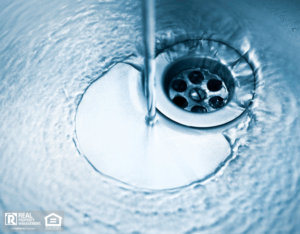 If you have to clean up after a meal or a project, your first instinct may be to pour any leftover liquids down the drain. Nevertheless, pouring certain materials down your drain may severely damage your plumbing system and the environment. Harmful chemicals, particularly, can wreak havoc on your pipes and wastewater treatment, requiring costly repairs for you and causing the water treatment facility to face numerous challenges. Therefore, how does wastewater treatment operate, and what can you do to avoid adding harmful chemicals to the wastewater in your town? Let’s examine these issues and list the top 5 things you should never pour down the drain.
If you have to clean up after a meal or a project, your first instinct may be to pour any leftover liquids down the drain. Nevertheless, pouring certain materials down your drain may severely damage your plumbing system and the environment. Harmful chemicals, particularly, can wreak havoc on your pipes and wastewater treatment, requiring costly repairs for you and causing the water treatment facility to face numerous challenges. Therefore, how does wastewater treatment operate, and what can you do to avoid adding harmful chemicals to the wastewater in your town? Let’s examine these issues and list the top 5 things you should never pour down the drain.
Why Care About Wastewater?
Wastewater is any water that has been used and is now contaminated. This can incorporate water from your kitchen sink, bathroom sink, washing machine, and even the water that goes down the drain after taking a bath. Wastewater treatment is the technique of cleaning this water so that it can be reused or returned to the environment.
Wastewater treatment is imperative because it protects our drinking water, maintains the cleanliness of our rivers and lakes, and protects the environment from harmful pollutants. When you flush harmful substances down the drain, you directly support pollution and the dilapidation of our water resources.
5 Things You Should Never Pour Down the Drain
The top 5 things you should never pour down your drain are:
- Grease and cooking oil. Grease and cooking oil have the potential to harden in your pipes, producing clogs that block water flow. They can also gather inside your pipes, sooner or later leading to leaks and a disgruntled property manager. The ideal method to dispose of grease and cooking oil is to flush it into a heat-resistant container and chuck it in the garbage.
- Paint. Paint can contain harmful chemicals that damage the water and the nature. It can also clog your pipes, necessitating expensive fixes. If you have leftover paint, get in touch with your local waste management office to figure out how to dispose of it safely.
- Household cleaners. Household cleaners often contain harmful compounds that can damage your plumbing system and nature. After using a household cleaner, empty any leftover liquid into a container and dispose of it in the garbage.
- Medication. Medication can pollute the water and harm aquatic life. If improperly disposed, it can also wind up in our drinking water. Taking your medication to a local pharmacy is the best approach to get rid of it.
- Car fluids. Hazardous substances included in car fluids can contaminate the surroundings and water. They can also damage your car if they penetrate into the engine or other areas of the car. The ideal technique to dispose of car fluids is to take them to a local garage or auto parts store for disposal.
Adhering to these easy guidelines can help protect your plumbing system and the environment. Always remember to throw it out when in doubt!
Are you looking to rent a new house in Plantation or the neighborhood? Real Property Management of Soflo can assist. Browse our listings online to locate excellent rentals in your vicinity. Contact us if you have any inquiries!
Originally Published on Oct 14, 2022
We are pledged to the letter and spirit of U.S. policy for the achievement of equal housing opportunity throughout the Nation. See Equal Housing Opportunity Statement for more information.


